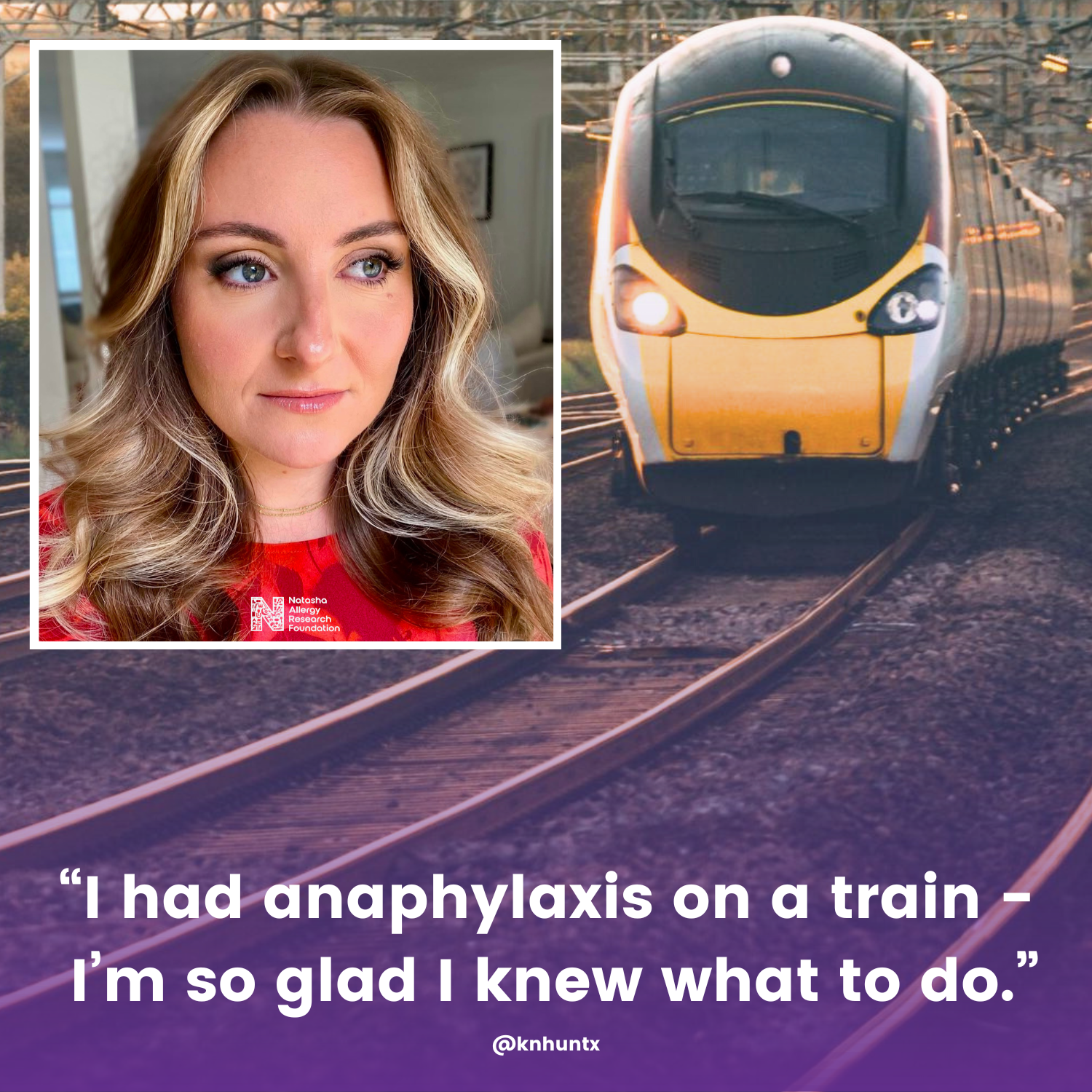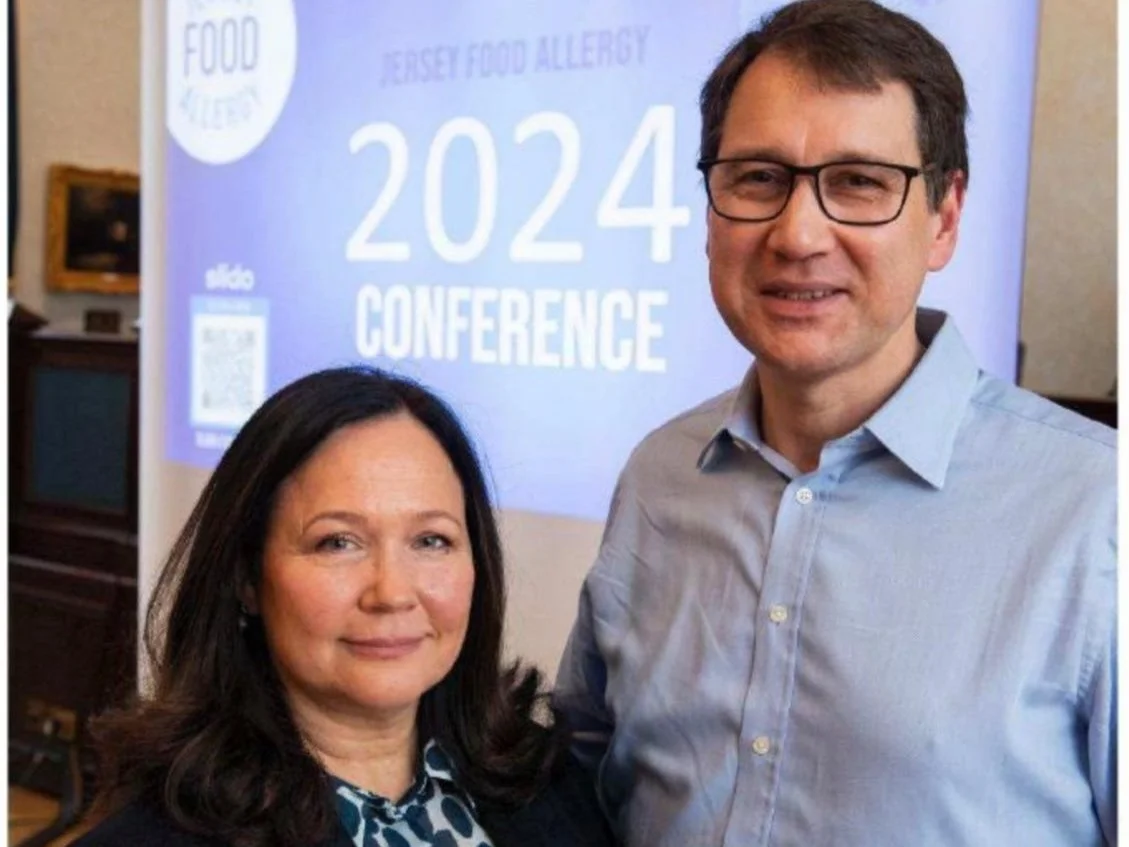Is 'Vegan' Food Safe for People with Food Allergies?
We are welcoming author and blogger Ruth Holroyd as a guest to our blog.
Ruth raises awareness of what it is like to live with food allergies and here she raises the important question of whether people with food allergies can assume the word ‘vegan’ means it is ‘free-from’ food allergens such as dairy, eggs, meat and shellfish.
If you have life threatening allergies to foods like milk, eggs or fish etc, the rise in veganism should be a good thing. The increase in vegan options should make things easier, or at least you’d think so.
However, it would seem that choosing vegan is anything but safe for those with food allergies.
The Food Standards Agency warns that consumers should not rely on a ‘vegan’ logo if they have milk, fish, crustacean, mollusc and/or egg food allergies.
Any food product labelled as ‘suitable for vegans’ may not be appropriate for certain allergic consumers due to unintentional cross-contact with allergenic ingredients of animal origin. It would seem there is a very real risk in trusting anything with a vegan claim because this doesn’t seem to mean it’s guaranteed ‘free-from’ allergens like milk, eggs, fish etc. Allergic consumers should only ever trust claims such as allergen free or milk free.
Furthermore, the Food.gov website says:
When you buy vegan food, you might not expect it to contain any trace amounts of milk, egg, fish, crustaceans and molluscs. However, trace amounts of cross contamination can occur when vegan food is produced in a factory or kitchen that also handles non-vegan food.
This is very confusing for the consumer. If I was a vegan, I’d expect my food to be completely free from animal products. It would seem there is a danger because less care is taken for the vegan consumers as there is no risk of death from anaphylaxis? So, vegans could be, and most probably are, consuming traces of animal products but are never really made aware of it.
An allergic consumer would potentially be at risk of anaphylaxis from such exposure to trace elements, so care is needed and checking is essential before choosing anything labelled as vegan.
This is why you’ll often see vegan products with precautionary ‘may contain’ labelling, because they are not produced under such strict guidelines as allergen free products.
This message really needs to be better communicated, not just amongst the allergy community but to the general public and in particular waiting staff.
Hands up who has asked for the allergen menu and been brought either the gluten free menu, or the vegan one? People seem to use allergies, gluten free and vegan interchangeably which is very dangerous.
I suspect that there is a very poor understanding of the difference between vegan and allergy labelling and the risks to the consumer.
People may not feel confident mentioning their allergies.
Some people with allergies feel shy about mentioning them, and may choose options from the menu hoping they will be OK. They might assume a menu item marked as vegan is safe.
Couple that with the fact that statistics show the younger generation are less likely not to be carrying their adrenaline pens and you could have a very vulnerable group putting their lives at risk.
It is imperative that all allergic consumers double-check, even if the allergen menu looks like it’s very clearly marked. Never trust only the menu labelling or the details on a restaurant app. When choosing vegan products from the supermarket or deli, use caution because it may not be safe. Not all vegan products will carry a ‘may contain’ warning but that doesn’t necessarily mean they’re safe.
Allergic consumers should ALWAYS ask, check and insist on seeing packaging if applicable.
It may not even be vegan.
I wonder how vegans feel about this too? I have many vegan friends who would not be happy to choose a vegan dessert and find out that it contained even traces of milk and eggs. Do vegans expect more care to be taken in the production of their food? I’m pretty sure they would, but since mistakes are not life-threatening for them, we’ll never really know if there are traces present unless all food is rigorously tested.
What can we do to raise awareness of this risk to allergic consumers?
I don’t think many people know that there is such a high risk from vegan products for the allergic consumer. Everyone I speak to is surprised to hear this, so how can we get this message out to everyone?
This month is typically often celebrated as championing vegan values with the ‘Veganuary’ trend. It’s a great initiative to get people eating a more plant-based diet. Going vegan isn’t practical for all people with life-threatening food allergies, not least because the choices are too limited when you are already cutting out other foods which might make up a large portion of the vegan diet. We just can’t trust processed vegan foods nor the options available when eating out.
Keep sharing information with the people you come into contact with when ordering and buying food. Tell them about this and ask your vegan friends if they know that ‘Food Law’ allows their plant-based foods to contain traces of animal products. I’m not sure we can change this law but we can help raise awareness to those most at risk from exposure to food allergens.
Ruth Holroyd, author and blogger .
Ruth writes about all things allergy and eczema on her award-winning blog ‘What Allergy’ which aims to help those with life limiting chronic conditions such as eczema, topical steroid withdrawal, asthma, allergies and anaphylaxis. She won the Free From Hero Award 2021 at the FreeFrom Food Awards and her blog has won countless awards for Best Allergy Blog, Best Health blog etc.
She has written two books, ‘Anaphylaxis: The Essential Guide: An Action Plan For Living With Life-Threatening Allergies’ which focuses on anxiety and fear and how to live with the daily challenge of living with a life limiting condition. Secondly a poetry collection for people with eczema, psoriasis, atopic dermatitis, and topical steroid withdrawal, called The Shape of Skin.
References:
Visit the Food.gov website for details on vegan and free from claims and laws.
Visit the Food and Drink Federation website for clear guidelines on free from and vegan claims.













